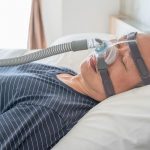
The U.S. Food and Drug Administration (FDA) has approved the first prescription medication specifically for treating obstructive sleep apnea (OSA): the weight-loss drug Zepbound. In a news release published Dec. 20, the FDA stated that Zepbound, part of the GLP-1 receptor agonist medicines that include Ozempic, was cleared to treat moderate to severe OSA in individuals with obesity. According to drugmaker Eli Lilly, the treatment is intended for use alongside a reduced-calorie diet and increased physical activity. “Today’s approval marks the first drug treatment option for certain patients with obstructive sleep apnea,” Dr. Sally Seymour, director of the Division of Pulmonology, Allergy, and Critical Care in the FDA’s Center for Drug Evaluation and Research, said in a news release. “This is a major step forward for patients with obstructive sleep apnea.” OSA, a condition affecting as many as 30 million Americans, is characterized by breathing disruptions during sleep caused by blocked airflow. Weight loss has long been recognized as an effective strategy to reduce OSA severity. “Many cases of OSA go undiagnosed and untreated, leaving millions at risk for serious health consequences,” Patrik Jonsson, president of Lilly Cardiometabolic Health, said in a news release from the company. In clinical trials, he noted, nearly half of Zepbound users saw such significant improvements that their OSA symptoms resolved. FDA approval for Zepbound in treating sleep apnea was… read on > read on >


















